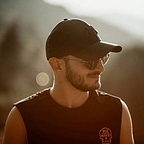I don’t want to go back to “how things were”
Being back home feels a little different this time, a little forced and unfamiliar. The Easter break just ended and, after a much-needed rest and visit with my parents and family, I am excited to get back to my daily routine. Only it’s 7 a.m. on a Sunday and I am sitting in front of my laptop, anxiously waiting to secure a vaccine appointment before the ten-thousand-something-long queue books every convenient slot available.
I barely slept the night before.
Scratch that.
I barely slept the week before. I was (and still am) ecstatic to get fully vaccinated. I have been talking to everyone for weeks now about how I cannot wait for my turn to come. To feel safer, to feel more responsible, to feel more… human again. There was never a single doubt in my mind about the benefits of the huge vaccination efforts undertaken by global governments since the dawn of 2021.
And still, a little sense of fear is crawling somewhere within my depths. Not for the vaccine itself. Not for the possible fever, the occasional headache, or the very unlikely blood clot. My fear, I realize as I ponder turning in my bed, intensifies every time I hear people wish that “things go back to how they used to be” or begging for their “normal life” back. I guess then what I am feeling and experiencing has a name and a form.
I am terrified of returning to “how things were”
Before the first lockdown in spring 2020, I remember functioning like a well-oiled machine, a perfectly synced Swiss watch that could do a thousand things a day and still not complain. I spent my 8 hours in the office barely leaving my chair to eat and visit the restroom. I prepped fresh meals everyday. I worked out five times a week. I walked no less than 6km a day. I travelled abroad at least 6 times a year. I made plans literally every weekend. I drank my 2 litres of water per day religiously. I kept in touch with all my friends across the globe as often as possible, be it via phone, email, or instant messaging.
It took a pandemic and a global lockdown to realize how burned out I was.
For many of us young adults in the generation of social media, fake news, high unemployment rates, political and financial turmoil, and many more unprecedented social phenomena, living this type of life has always been presented as enviable. However, the pandemic helped me realize that I was conforming to an unrealistic standard of life, trying to calculate all my moves, steps, and human relationships with a precision that’s not embedded in human nature. Day in and day out, I was becoming more addicted to this frenzy lifestyle, to the point that it got too fast for me to be able to hit the brake. Until someone else did for me.
The hardest part was the first month of lockdown back in early 2020. I remember trying to apply all the rules of my previous life (bar the traveling part) to my current, limited day-to-day, only to feel more and more stressed everyday.
Gotta wake up early.
Gotta dress up to feel good about myself.
Gotta work out today again.
Gotta avoid sweets and carbs.
Gotta catch up on Zoom with someone I haven’t spoken to recently.
The more I started to realize the futility of my previous life’s obsession for perfection, slowly all these compulsions started dissipating. I won’t lie; having a full-time job throughout the pandemic kept me sane. I have huge respect for people who lost their job and income throughout these trying times and managed (or are still trying to manage) to find a way out of the limbo they found themselves stuck into. And I definitely think that, although we all went through this together globally, not all of us had it equally bad.
Throughout the past year and a half, I managed to make small changes in my life that I definitely hope I can keep up in the future. I also managed to get back to some of my old hobbies that I had put aside for some time. I feel saner, I feel calmer, I feel equally fit and healthy as before but with less sacrifice. A great example of all this is how I recently overcame my almost crippling FOMO, hitting me every time I was invited somewhere and couldn’t make it because I had already committed to various other things.
Before the pandemic, I would need clones of myself to feel happy with my achievements. Now I am happy achieving things within my reach — and just a tad further away.
What people call normal life scares me because it tends to engulf you without you noticing. Before you know it, your leisurely pace becomes a frantic sprint and your long-term goals become strict daily targets to hit or go home. This normal life comes with expectations, standards, and trends from all directions. Unless you are the lucky type that doesn’t have a single care in the world, most of the times you need to either keep up, or at least generate convincing excuses to yourself and others to not follow. The price is often steep.
So yes, I want the pandemic to end.
Yes, I want each and every person to get a job and feel productive, useful, and recognized for their efforts.
Yes, I want to hug people and walk side-by-side with them again.
But no, I do not want to go back to ‘how things were’.
After all this, I should know better.
